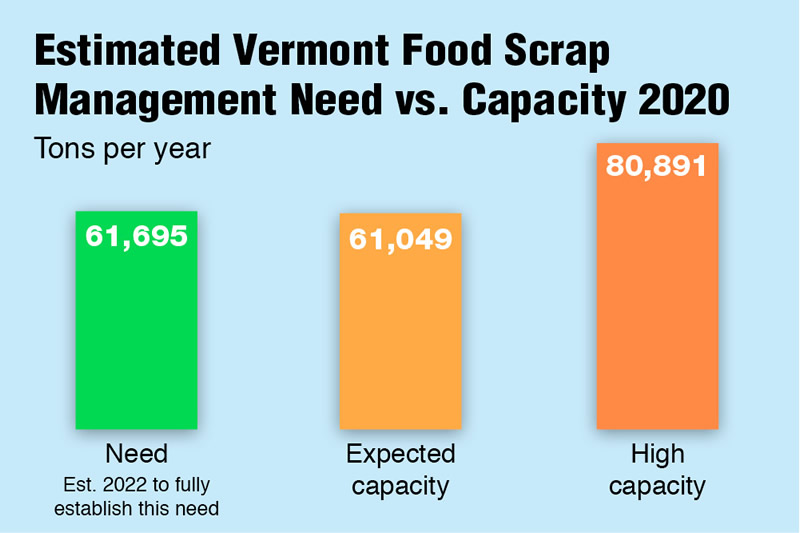As of July 2020, no food waste can be disposed in the landfill in Vermont, including the residential stream. The mandate is in the state’s Universal Recycling Law, passed in 2012. At its December Universal Recycling Stakeholders Meeting, the Vermont Department of Environmental Conservation (VT DEC) included a presentation and discussion on depackaging of food waste, and gave an update on food scrap management capacity in the state.
Using data from the 2018 Vermont Waste Composition Study, VT DEC estimates that about 80,000 tons of food residuals are disposed annually, with about 30,000 tons of that in packaging (38%). Notes VT DEC, “this indicates there is a significant volume (not a de minimis amount) of food residuals in packaging that is disposed that needs to be addressed while recognizing the challenges with managing food residuals that are packaged.” Generators of food residuals need to keep food residuals (including food residuals in packaging and that which is unpackaged) separate from their trash. Thus, “packaged and unpackaged food residuals shall not be mixed with other trash at the point of generation.”
With regards to food scrap management capacity, VT DEC estimates that about 62,000 tons/year of capacity will be needed by 2022; expected processing capacity to be available is around 61,000 tons/year. The highest management capacity that may be available, taking into account facility expansions, is almost 81,000 tons/year.
February 4, 2020 | General










